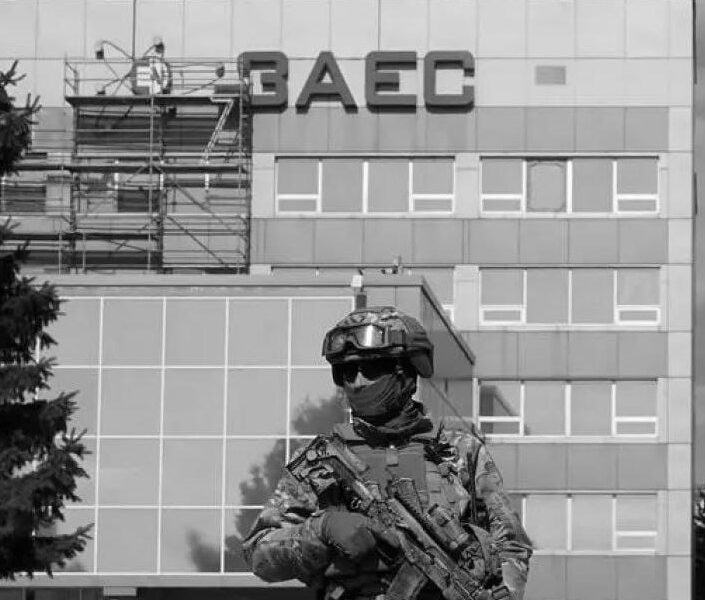Photograph courtesy of energoatom.ua
Russia’s continued military aggression against Ukraine poses an ever-growing nuclear risk, exemplified by the latest alarming incident at the Zaporizhzhia Nuclear Power Plant (ZNPP). The damage to a diesel fuel tank at the plant threatens its operational stability and has the potential to trigger a disaster comparable to the catastrophic failure of the Fukushima Daiichi nuclear power plant in Japan in 2011.
The ZNPP, one of Europe’s largest nuclear power stations, relies on backup diesel generators to power essential safety systems in the event of a power loss. These generators are vital to maintaining cooling systems and ensuring the safe operation of reactors if the plant is disconnected from Ukraine’s national power grid, something that could happen as a result of ongoing military actions or deliberate sabotage by Russian forces. However, the recent damage to the fuel tank has created a critical fuel shortage, jeopardising the functioning of these generators.
The Fukushima disaster was caused by a similar failure. In 2011, after a devastating tsunami, the plant’s reactors lost external power, and backup generators failed to keep the cooling systems operational. This led to a dangerous overheating of reactor cores and a partial meltdown, one of the worst nuclear accidents in history.
Today, Russia is creating a comparable threat at the ZNPP, with catastrophic consequences looming. The Russian occupation forces have demonstrated their inability or unwillingness to ensure the safety of the plant. In fact, their actions have been directly aimed at destabilising the plant’s operations. Russian military forces have repeatedly targeted critical power lines supplying the plant, and now they have damaged a key fuel reserve necessary to maintain emergency power supplies.
While the Russian Federation attempts to deflect blame, accusing Ukraine of threatening the plant’s security, the reality is clear: the plant remains entirely under Russian control. All damage to the facility has occurred as a direct result of Russian actions, whether through targeted strikes or mismanagement.
In the light of these mounting risks, Ukraine calls on the international community to take immediate and decisive action. Sanctions on Russia’s state nuclear corporation, Rosatom, must be intensified, and there must be an unequivocal demand for the complete withdrawal of Russian troops from the ZNPP. Each additional day of occupation brings the world closer to a potential nuclear disaster, and the urgency of securing the plant cannot be overstated.




